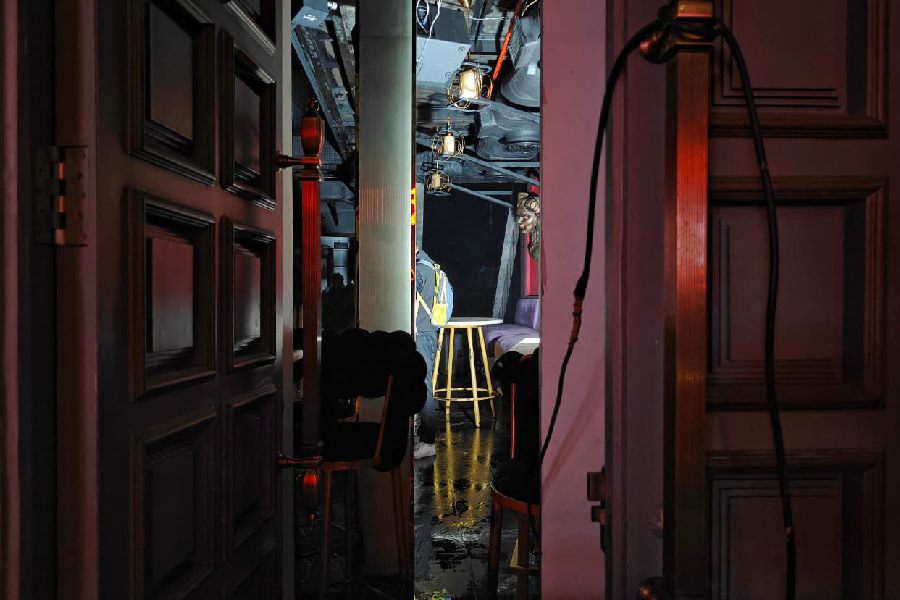Argentina, at this 2014 World Cup, are something of a shambles. The players and coach Alejandro Sabella squabble incessantly over tactical shapes and these dictate, of course, the choice of personnel.
Their fans have flooded north into Brazil with an expectation of emulating the historic achievement of Uruguay in 1950. Then, 64 years ago, the Celeste (light blues) shocked mighty hosts Brazil in “their own” World Cup final.
Here in 2014, the hinchada — Argentinian fans — believe the Albiceleste (light blue and whites) should match that trick. Nothing would please them more. The man on whom they rely is Leo Messi, one of the shortest players at the finals in terms of height but without any doubt the greatest in terms of talent.
Messi came to the rescue of Argentina with a late winner against Iran on Saturday in Belo Horizonte, in their second match in Group F. Similarly, Messi had won the day for Argentina late in their earlier opener against Bosnia.
Without him Argentina would look very ordinary, particularly in this World Cup of exceptional football delivered by players of outstanding quality at remarkable pace. The fabled technique of Argentina’s heroes should lift them to that same level. But players of star quality as individuals are virtually unrecognisable in this stuttering team.
Hence so much rests with the captain.
This is not new, nor is it a worry for the fans. Argentina have won the World Cup twice, on each occasion in Latin America and each time with an inspirational leader to drive home the cup-winning bargain when the rest of their team-mates were still struggling for footballing change.
In 1978, in front of their own fans in Argentina, the leader was Daniel Passarella. He was a bullish defensive halfback with a forceful personality. If ever Argentina were becalmed in a game — against Italy, France, Peru, whoever — he would demand the ball and then sweep forward from deep in his own territory, scattering opposition midfielders and almost frightening his own strikers into finding space to attack.
It was Passarella, when the referee summoned forth Argentina and Holland for the final, who held his team back so the Dutch — alone out on the pitch — grew impatient and irritable. It was Passarella who, just before kick-off, objected to a plaster cast on a Dutch player’s wrist. More delays followed while it was replaced with a heavy bandage.
The Dutch, angry and frustrated, lost their footballing focus and, ultimately, the final 3-1 in extra time.
Messi is no “Raging Bull” leader like Passarella. Nor would Messi ever pull the outrageous “Hand of God” stunt employed by Diego Maradona against England on the way to glory in 1986 in Mexico.
Argentina’s fans love their characters. From tackle-crunching Luisito Monti in the late 1920s, to River Plate’s “Maquina” (Machine) forward line of the 1940s, to the so-called Angels With Dirty Faces (Humberto Maschio, Antonio Valentin Angelillo and Omar Sivori) who carried off the 1957 Copa America, then immediately departed for clubs in Italy.
Old fans still insist that, had they stayed, Argentina and not Brazil with that teenage kid Pele would have won the World Cup in Sweden a year later.
Messi is no urchin from the streets of Argentina. He has played only in Spain, returning home just for the important internationals. He has struggled to win over his “home” fans and his talent was barely trusted by successive managers in the World Cups of 2006 and 2010.
Maradona was the “Mister” in 2010 whose tactics too often left Messi a forlorn figure drifting along on the periphery of play. “Dieguito’s” opinion has not changed much. Faithlessly, he left his place in the VVIP box before the end of Saturday’s game against Iran. Hence he missed seeing Messi’s sublime winning goal.
Robin van Persie had scored with a wonderful header against Spain; Luis Suarez had lashed home a ferocious drive against England; Tim Cahill had struck a “Van Basten” volley against the Dutch; Wayne Rooney (forgotten amid the England post-mortem) scored a textbook start and finish goal against Uruguay… but the matchless genius of Messi was not only in the execution but in the timing.
The goal came too late for Iran to do anything about it.
Argentina’s thrilled fans, the vast majority in the vast Mineirao bowl, refused to leave at the final whistle. They remained, chanting happily, until they saw a rerun of Messi’s goal on the giant video screens.
Many of them then tore off their Argentina shirts and waved them as they bowed to the screens. Worship indeed. It’s been a long time coming. But maybe it’s the terrace bond and inspiration that Messi and all his team-mates needed.











